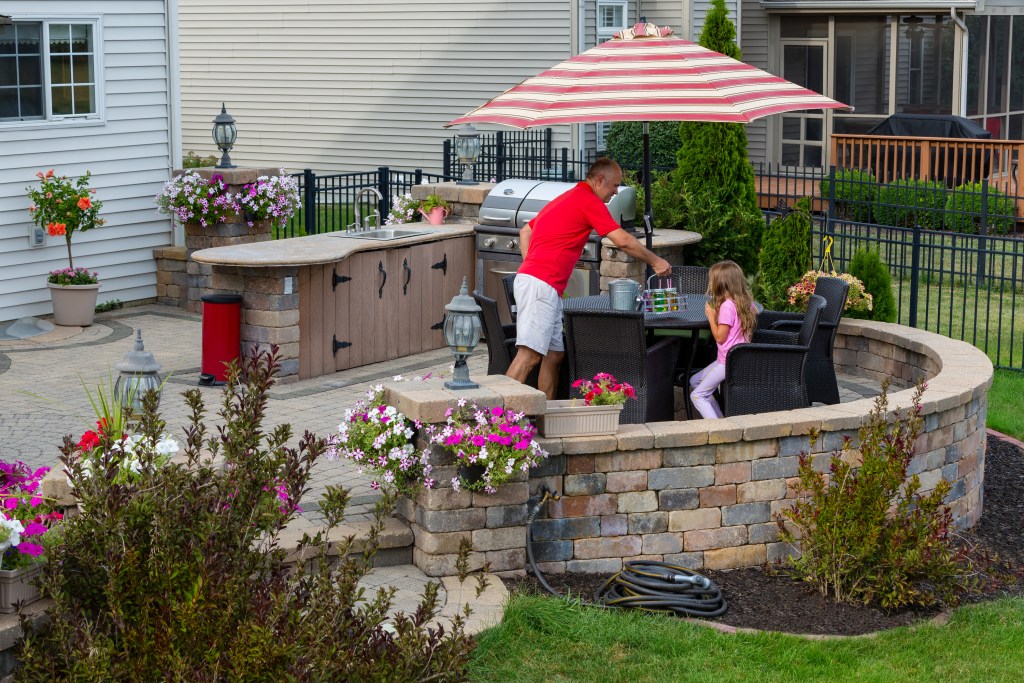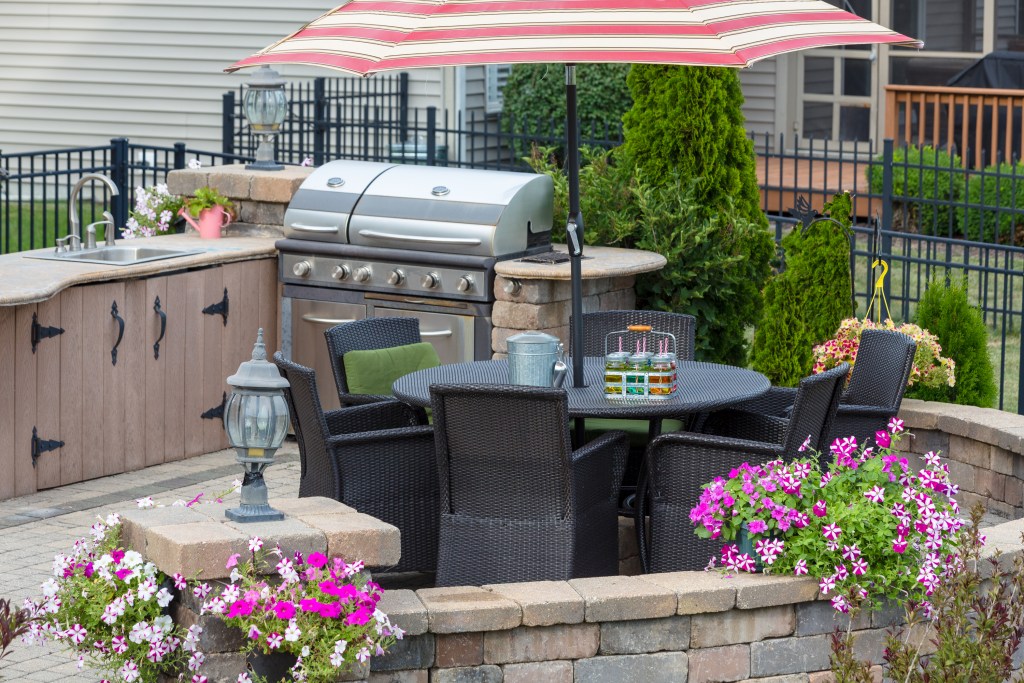Whether you want a new outdoor countertop for an outdoor kitchen or maybe a little island for eating on your patio, choosing a suitable material is key. Sure, you want your countertop to look like a million bucks, but your primary concern is durability. Think of your countertop’s longevity first and looks second. You’ll lessen the risk of making a bad investment that way.
When planning your area, make sure you’ve got plenty of counter space and select materials that will complement your cooking style. You’ll also want to select colors and patterns that go with your home’s overall aesthetic. The best outdoor countertop material is going to be granite, concrete, or stone. You could also choose recycled glass or quartz, but be aware that these aren’t really designed to withstand the wear and tear of outdoor existence.
With the above in mind, here are some great outdoor kitchen countertop ideas.

Granite countertops
You just can’t go wrong by choosing a granite countertop. When it comes to maintenance, choice of color, and ease of use, granite’s one of the best materials out there. In addition, its durability outclasses every other type of countertop on this list.
In addition to the fact that granite won’t discolor, lose its shine, or etch, you also can’t damage it through natural wear and tear. That’s true even when it comes to your outdoor cooking adventures. As long as you seal your granite countertop after purchase, you can have all kinds of food disasters on it, and it won’t stain. Plus, there are a ton of different patterns and colors from which you can choose.
Quartzite countertops
Another great material for backyard kitchen countertops is quartzite. Be aware that we’re not talking about “quartz,” which is an engineered stone. Instead, we’re speaking of the natural stone quartzite. It has most of the same qualities as granite and is almost as long-lasting.
Concrete countertops
Another long-lasting material is concrete. Now, it’s possible to scratch concrete, and small bits can be broken off, or it could crack. However, in general, it’s a better option than some others on the market. If concrete is your choice, pay attention to any coloring you use because the sun can cause it to fade and turn yellow. It’s best to keep this countertop in the shade as much as possible.
Additionally, you’ll need to seal it after purchasing, and you’ll have to reseal it regularly as part of your overall maintenance. Unless you’re super experienced at installing countertops, you should hire a professional to handle the installation of a concrete countertop.
Soapstone countertops
Soapstone countertops are a great option because they are resistant to staining as well as to heat and bacteria. On the downside, though, you can scratch soapstone pretty easily. Of course, you could sand out the scratches, but that’s just more work added to your plate. Another downside is the ease with which the material darkens when exposed to natural skin oils, fingerprints, and other liquids.
At the same time, soapstone isn’t porous, so you don’t have to seal it regularly. Additionally, even though you might have problems with oils, you won’t have issues with acidic foods like tomatoes, vinegar, or citrus fruits.
Other stone countertops
If you have your heart set on stone for your outdoor countertop, there are several options. (We mentioned granite previously.)
Other types you could choose are bluestone, marble, or limestone. They each look nice in the beginning; however, foods such as wine or animal grease can stain them, and they are hard to remove.

Final thoughts
Selecting the right outdoor countertop can be tough, especially considering there are so many different options. However, we think granite is your best bet. It’s durable and won’t stain with proper care. While there are some good alternatives on the market, keep in mind that some of these are better for indoor use.
To ensure you make the decision that’s best for you, consider your climate, how much shade you have available, and how much time you’re willing to invest when it comes to maintenance.
Editors' Recommendations
- A beginners guide on what to grow in your greenhouse for a thriving garden
- What you need to know about growing sugar snap peas in containers
- Check out these small outdoor kitchen ideas to turn your limited space into a chef’s paradise
- When and how to transplant tomato plants for the best results
- 5 outdoor living trends that will totally improve your 2022



